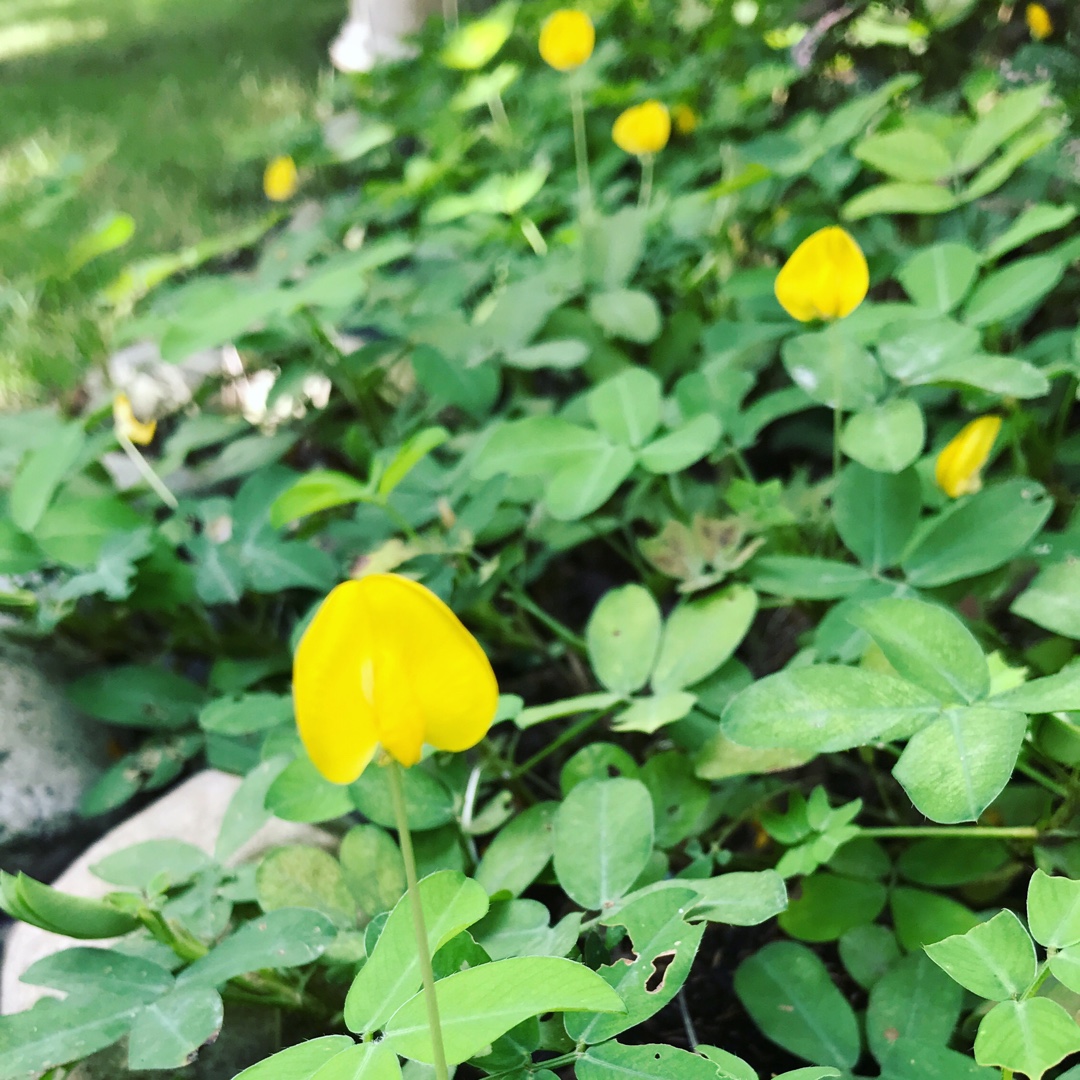
Arachis pintoi
Pinto peanut
Arachis pintoi is a prostrate, stoloniferous, perennial tropical legume, growing about 8 inches high. Stems grow along the ground and root at the nodes. Leaflets are oval, four on each petiole. Flowers are yellow, borne on short axillary racemes. Flower stalks elongate and grow down into the soil. Fruit is a terminal one-seeded underground pod, light brown, 1 to 1.5 cm long, 6-8 mm in diameter. It is a native of central Brazil; spread to Argentina, Australia, the US, later on to the Pacific, Southeast Asia and Central America. Planted as ornamental landscaping ground cover or as a forage crop. The yellow flowers are edible; a color ingredient to soups and salads. In the Bicol Province, Philippines, leaves are crushed and rubbed over insect and centipede bites. Potential for erosion control.
Contributed by @newjeanius
-
Full sun
-
Occasional watering
-
Not Frost hardy
-
Rich and free draining
Common name
Pinto peanut
Latin name
Arachis pintoi
type
Perennial
family
Fabaceae
ph
4.5 - 8.7 Acid - Neutral
Plant & bloom calendar
-
Best time to plant
full grown dimensions
 0.50 M
0.30 M
0.50 M
0.30 M
Arachis pintoi
Arachis pintoi is a prostrate, stoloniferous, perennial tropical legume, growing about 8 inches high. Stems grow along the ground and root at the nodes. Leaflets are oval, four on each petiole. Flowers are yellow, borne on short axillary racemes. Flower stalks elongate and grow down into the soil. Fruit is a terminal one-seeded underground pod, light brown, 1 to 1.5 cm long, 6-8 mm in diameter. It is a native of central Brazil; spread to Argentina, Australia, the US, later on to the Pacific, Southeast Asia and Central America. Planted as ornamental landscaping ground cover or as a forage crop. The yellow flowers are edible; a color ingredient to soups and salads. In the Bicol Province, Philippines, leaves are crushed and rubbed over insect and centipede bites. Potential for erosion control.
Planting
From Early Spring TO Mid Spring
Peanuts require a long growing season Plant them in early to mid Spring when the soil has warmed up. Take the seeds out of their shells and remove the skins, and plant about 4 cms. deep, 8 cms. apart, and the rows 1 m. apart
Propagating by seed
From Early Spring TO Mid Spring
Plant seeds directly outdoors for areas with long growing seasons (they need 5 months of warm weather). In areas with short growing seasons, grow them in pots or containers for indoor plants. For outdoor plants, sow when the soil has warmed, and cover the seeds with an inch of soil and space the seeds 6 inches apart, and space the rows 24 - 36 inches apart.









